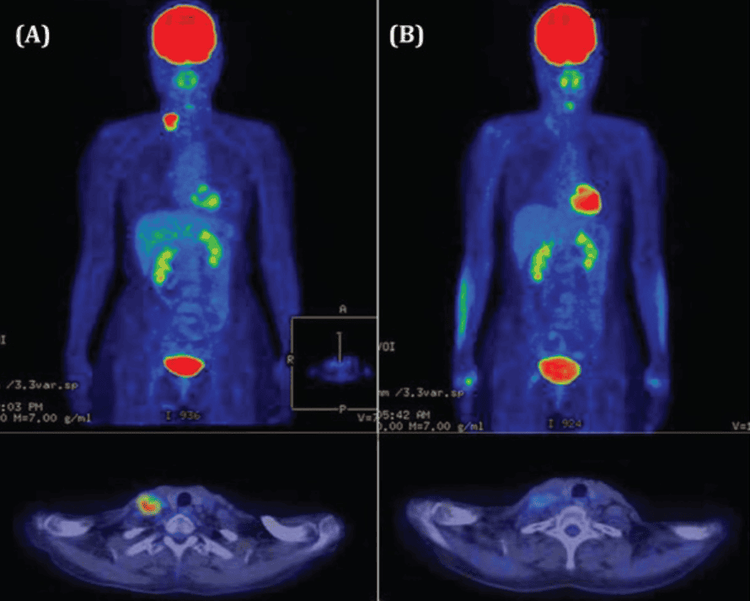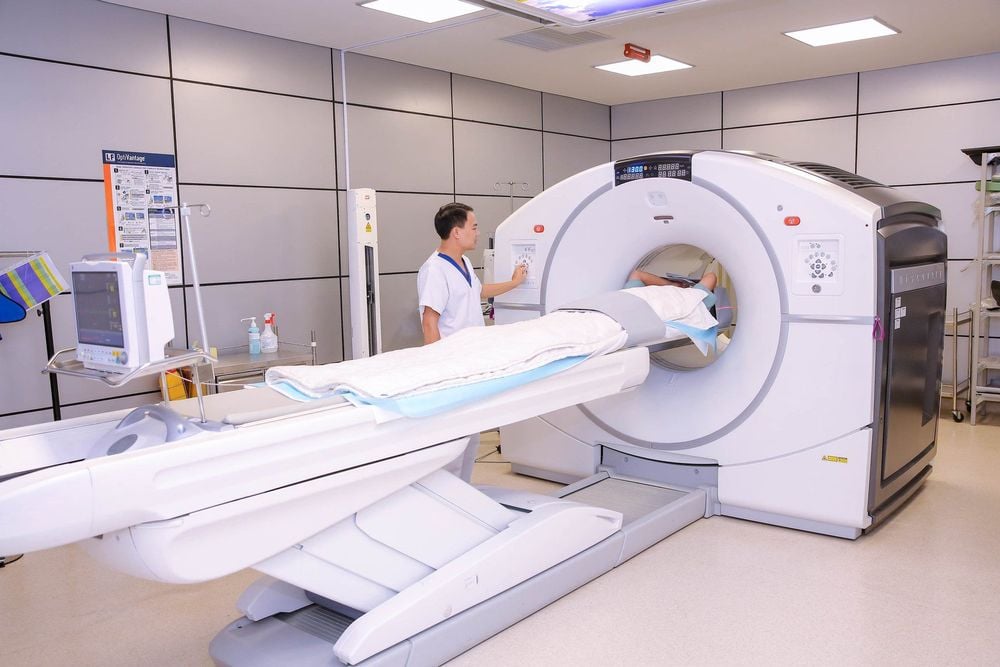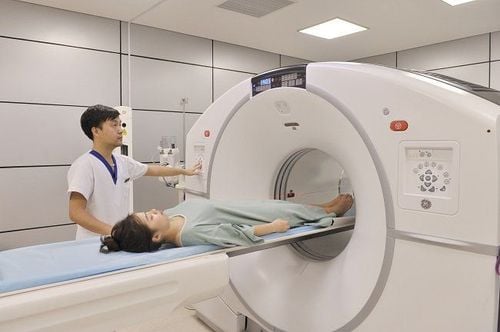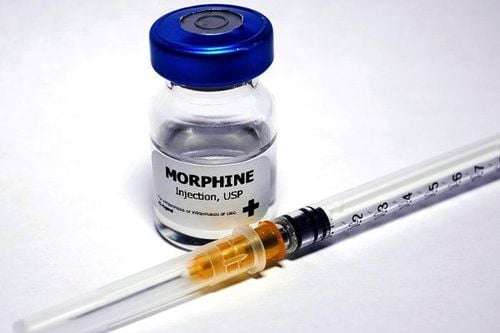This is an automatically translated article.
PET, PET/CT are important imaging tests used in cancer monitoring. PET, PET/CT scans can help detect recurrence of cancer cells through radioactive substances and modern cancer identification analytical equipment.1. Effect of PET, PET/CT in monitoring cancer recurrence
There are different types of tests that are used to diagnose, stage cancer, monitor treatment, and monitor cancer recurrence. The PET/CT imaging test helps detect and visualize tumors by creating images of organs and tissues inside the body. PET/CT scans are often used at different times in cancer diagnosis, treatment, and post-treatment follow-up.
Positron emission tomography (PET) is a way to make pictures of organs and tissues inside the body. A small amount of radioactive material is injected into the patient's body. This substance is absorbed by the cells that use the most energy. Because cancer cells use more energy than normal cells, they absorb more radioactive material. A scanner then identifies the substance to create an image of the inside of the body.
A PET scan combined with a computed tomography (CT) scan known as a PET/CT scan provides more detailed images than a PET or CT scan alone. A CT scan creates a three-dimensional image of the inside of the body using an X-ray machine. The computer then combines these images into a detailed, cross-sectional frame showing the abnormal tumours.

The American Society of Clinical Oncology (ASCO) recommends against using PET or PET/CT to monitor cancer recurrence in asymptomatic patients for recurrence in order to completely remove the cancer.
Trắc nghiệm: Thử hiểu biết của bạn về bệnh ung thư
Ung thư là nguyên nhân gây tử vong hàng thứ 2 trên thế giới. Thử sức cùng bài trắc nghiệm sau đây sẽ giúp bạn có thêm kiến thức về yếu tố nguy cơ cũng như cách phòng ngừa bệnh ung thư.
Bài dịch từ: webmd.com
2. Why should you not abuse PET, PET/CT scans?
PET and PET/CT scans can be very helpful in diagnosing or staging cancer. However, no studies have yet shown the impact of these imaging tests on prolonging patients' lives. In addition, if tests show an undetermined recurrence of cancer (known as false positives), follow-up testing and unnecessary invasive procedures are sometimes needed. This can be difficult for the person with the illness physically, mentally, and financially. Imaging tests are only done if your doctor recommends them to monitor your health, check your health, or make sure your cancer doesn't come back.
3. Useful questions in monitoring cancer recurrence
After cancer treatment, talk to your doctor about the purpose of each upcoming scan and how you can best monitor your health. Specifically, the patient or caregiver should ask the following questions:
What is the patient's follow-up appointment after cancer treatment is complete? Does the patient need any tests, and if so, what tests and at what frequency? What are the risks, benefits, and costs of these tests? What are the symptoms and signs that the patient should report immediately? What should patients report during routine checkups? Vinmec Times City International Hospital is equipped with the US PET/CT GE Discovery MIDR system with 128-strip CT - one of the most advanced PET/CT systems in the world. The advantage of this system allows displaying images with high resolution, while significantly reducing radiation dose for patients.

Since being put into use until now, Vinmec Times City International General Hospital has performed thousands of PET/CT scans to help diagnose, stage disease and monitor treatment response for almost all patients. all types of cancer such as lung, liver, stomach, breast, bone, lymph node cancer... PET/CT has become an effective and indispensable assistant, the "key to solve the problem" of daily life. cancer doctor.
Please dial HOTLINE for more information or register for an appointment HERE. Download MyVinmec app to make appointments faster and to manage your bookings easily.
Reference source: cancer.net
MORE:
Frequently asked questions about PET/CT at Vinmec Times City PET/CT: The golden key in the fight against cancer PET/CT helps early detection and support How is cancer treated?













